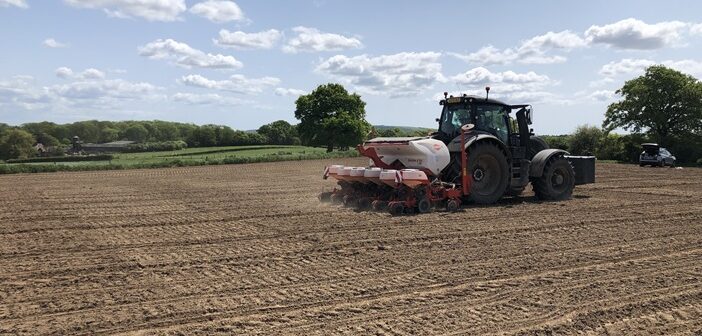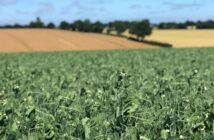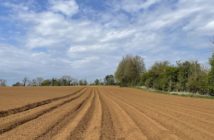Angus Dart farm manager Mark Oldroyd says the Pioneer Accurate Crop Testing System (PACTS) is an ideal tool when it comes to maize maturing and performance characteristics to suit climate and soil conditions.
He oversees the farm trial site in Oxford, a mixed farming enterprise of around 650 dairy cows and 2,000 acres of arable, with 500 acres down to maize.
“We have lots of variability across our farm in terms of soil type and topography, so selecting and growing a range of maize hybrids, specific to conditions, is key to ensuring yield, quality and consistency,” explains Mark, who’s been running PACTS trials on the farm for over 20 years. “The data that we get from the trials is invaluable in helping guide variety selection, and its especially important now weather conditions are having such an impact during harvest and challenging yields. We need to ensure that the maize we do grow is of the highest quality and we aim to produce maize silage with a DM of 30% and starch at 32% or above.
“Last season, we trialled 25 hybrids across the farm as part of our normal crop rotations. While it does require some extra work and input, the information we get out is so valuable it’s well worth the effort. The data we gather is also helping other farmers make better informed decisions and improve business performance – it’s good to be doing our bit for the industry.”
Increasingly erratic weather over recent seasons has highlighted the challenge of planting and harvesting maize under difficult conditions. Now, more than ever, it’s vital that farmers select maize varieties with optimal maturing and performance characteristics, while suiting farm’s specific climate and soil conditions, notes Corteva’s Andy Stainthorpe. “Data is key to driving the best business decision.”
PACTS trial results provide realistic data, gathered from 18 sites around the UK. “It offer reliable, multi-year performance data on hybrid maize performance, in real-world conditions, at farm sites across the country, demonstrating how hybrids perform in different environments.
“These trials are conducted on commercial farms using standard farming practices, in contrast to many other trials which are managed with specialist equipment for micro plots incorporating more rigid management protocols. This means sowing, spraying, and harvesting decisions are determined by the host farmer, ultimately providing realistic and practical data on how maize hybrids perform under actual farm conditions,” says Andy.
Each PACTS trial consists of 12 to 21 plots planted across uniform field areas, with a control hybrid included multiple times to help account for soil variation. Typically, plots are six or eight rows wide and around 50 metres in length.
“Trials are classified as ‘favourable’ or ‘less favourable’ based on local heat accumulation in that area, allowing farmers to determine the suitability of specific hybrids for their own land,” continues Andy. “Every plot undergoes detailed sample analysis, measuring dry matter, starch content, digestibility, and fibre composition to provide a comprehensive evaluation of silage quality.”
With data collected over multiple years, PACTS trials provide a clearer picture of how maize hybrids perform in a range of conditions, allowing farmers to choose varieties with characteristics that will deliver the best results for them.
Andy says: “With farmers under pressure to farm more efficiently and reduce input costs while adapting to changing climatic conditions, PACTS trials are a vital data-driven decision-making resource for livestock farmers to make use of.”




